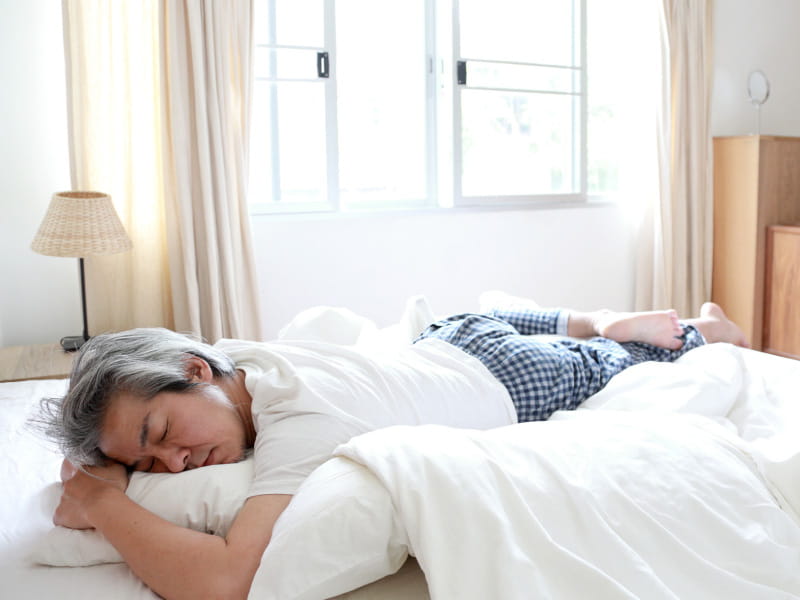Move around a lot while you sleep? It might be bad news for your heart
By Laura Williamson, American Heart Association News

Poor sleep quality – including moving around too much or having sleep apnea – may increase the risk for a future heart problem, new research suggests.
That problem is called left ventricular diastolic dysfunction, a precursor to heart failure. But not getting enough sleep did not appear to increase that risk, according to a study published Wednesday in the Journal of the American Heart Association.
Heart failure with preserved ejection fraction (HFpEF) – a type of heart failure that occurs when the left side of the heart muscle stiffens and can't properly pump blood to the rest of the body – makes up 60% of the 37 million cases of heart failure worldwide. "But there is no established method to prevent it," said lead study author Dr. Hidenori Koyama, a professor at Hyogo Medical University in Nishinomiya, Japan. "Our study tells us the potential importance of sleep quality for its prevention."
Prior research has shown sleep problems, including sleep apnea, are associated with an increased rate of heart failure. But little research has examined their association with left ventricular diastolic dysfunction.
Researchers analyzed sleep and heart health data for 452 adults, who were an average of 59 years old, over a nearly three-year period. They measured sleep apnea, sleep duration and how much a person moved while they slept – an indicator that sleep was restless.
People with moderate to severe sleep apnea, or who moved around a lot at night – but not those who didn't get enough sleep – were more likely to develop left ventricular diastolic dysfunction.
Among people with moderate to severe sleep apnea, about 28% later developed left ventricular diastolic dysfunction, compared with about 11% of those without sleep apnea. Among those who moved around a lot while they slept, 21% later developed the heart condition, compared with 8% of those who moved less.
A great deal is known about sleep apnea, a common sleep disorder, and how to treat it. Treatment options include continuous positive airway pressure machines, sleep positional therapy, oral devices worn during sleep, weight loss and surgery.
But less is known about how to address excessive movement during sleep. Koyama said many things might cause a person to move during sleep, including restless leg syndrome and a lack of deep sleep.
"There is a strong possibility that body movement during sleep represents a decline in sleep quality, such as a shortage of deep sleep time," Koyama said.
Some ways to improve sleep quality include getting sufficient exercise during the day and sleeping in a dark environment with no exposure to the blue light from smartphones and other electronic devices, he said.
Sleep quality is inadequately studied, said Dr. Michael Grandner, director of the Sleep and Health Research Program at the University of Arizona College of Medicine-Tucson, who was not involved in the new study. He said poor sleep quality might be caused by stress, pain or other health problems but is an important factor to consider when studying the relationship between sleep and overall health.
Grandner co-wrote a recent presidential advisory from the American Heart Association that added sleep duration – from seven to nine hours a night for most adults – to its list of key measures for good cardiovascular health, known as Life's Essential 8. Doctors should routinely ask their patients not just how much they are sleeping, but how well they are sleeping, he said.
"We can't ignore the effects of poor sleep quality, which are separate from sleep duration and sleep disorders," Grandner said. "What this study shows is that we should start thinking about how to improve sleep across multiple dimensions. Not just getting people to get enough sleep, which is a struggle in itself, but how do we get people to get better sleep quality?"
If you have questions or comments about this American Heart Association News story, please email [email protected].





